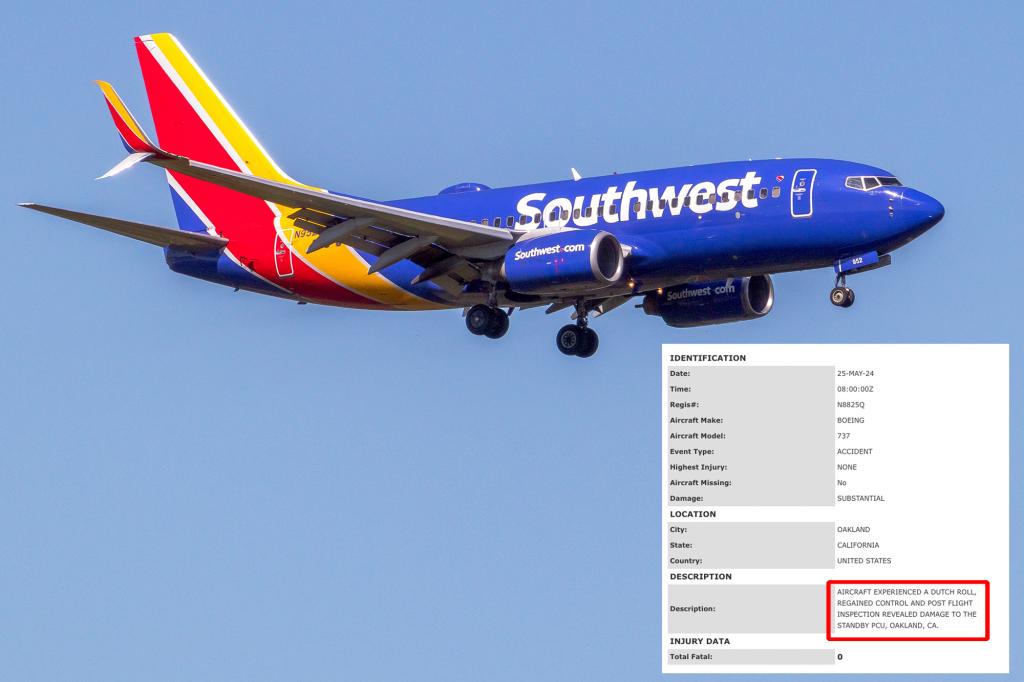A Southwest Airlines Boeing 737 experienced a rare Dutch roll at 32,000 feet during a flight from Phoenix to Oakland on May 25. The Dutch roll caused significant damage to the aircraft, but the pilots were able to regain control and safely land the plane in Oakland. No injuries were reported, as pilots are trained to counter Dutch rolls and modern planes are equipped with a yaw damper to combat them. The FAA is working closely with the NTSB and Boeing to investigate the incident further, and appropriate actions will be taken based on their findings.
A preliminary report from the FAA revealed that a power-control unit on the plane was damaged, which provides backup power to the rudder. Boeing and Southwest Airlines declined to comment on the incident, but the airline confirmed that they are cooperating with FAA investigators. This incident is the latest in a series of safety concerns involving Boeing planes, which has been facing mounting scrutiny and criticism for repeated technical failures. At least 20 whistleblowers have brought attention to issues within the company, which has also been the subject of a scathing House Transportation and Infrastructure report in September 2020.
The report found that two 737 MAX crashes in 2018 and 2019 were the result of repeated and serious failures by Boeing and regulators. In January 2024, a door panel blew off an Alaska Airlines Boeing 737 MAX-9 during a flight, further renewing safety concerns over the planes. These incidents have raised questions about the overall safety of Boeing aircraft and the effectiveness of regulatory oversight. The company is under pressure to address these issues and ensure that their planes meet the highest safety standards to prevent further incidents and protect passengers.
The Dutch roll incident with the Southwest Airlines Boeing 737 highlights the importance of pilot training and aircraft safety features in handling unexpected situations. The fact that the pilots were able to regain control and land the plane safely demonstrates the effectiveness of their training and the technology built into modern aircraft. Despite the damage caused by the Dutch roll, the incident did not result in any injuries, emphasizing the importance of safety protocols and procedures in aviation.
The cooperation between the FAA, NTSB, and Boeing in investigating the Dutch roll incident shows a commitment to identifying the root cause of the problem and implementing necessary changes to prevent similar incidents in the future. While incidents like these can raise concerns about the safety of air travel, they also serve as learning opportunities to improve safety standards and practices within the aviation industry. By addressing issues proactively and working together to enhance safety measures, stakeholders can ensure that passengers continue to have confidence in the safety of air travel.












